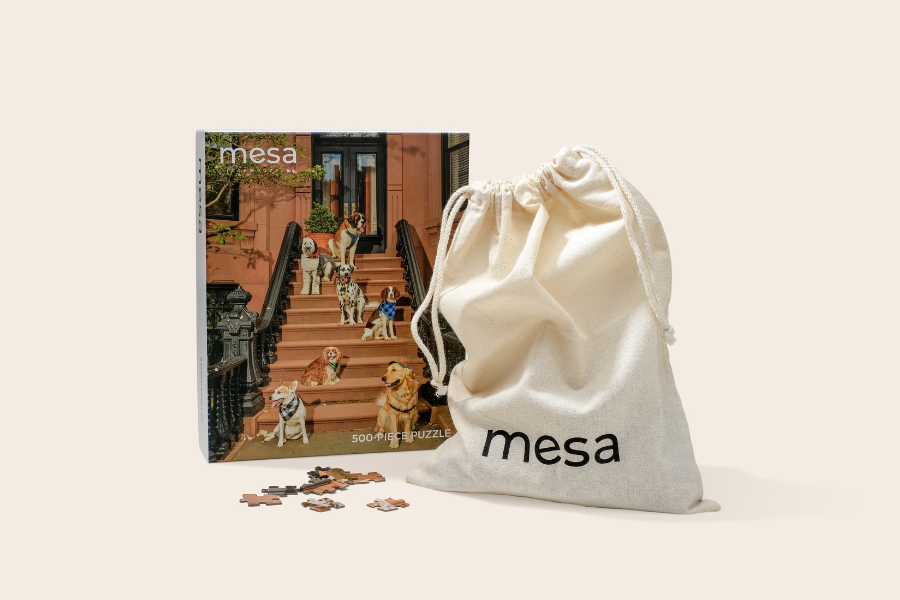Hey there, puzzle masters and daydream believers! In the world of restless brains and ever-wandering thoughts, we're taking a closer look at the question—can puzzles play a part in managing ADHD? We’ll be tackling this puzzle one piece at a time, with the goal of connecting hundreds of small ideas into one beautifully cohesive answer. For the ADHD community, educators, and anyone who loves a good mental challenge, read on to uncover the fascinating world of puzzles and their potential as an ADHD tool.
Puzzles: Not Just a Pastime
When you think of puzzles, what springs to mind? Perhaps a lazy weekend, where the only stress you're under is from trying to find that elusive piece that seems to be missing, or the satisfying 'click' of a corner piece finally being slotted into place. The truth is, puzzles are much more than a mere pastime. They are a playground for the mind, a tool for learning, and, for many, a valuable strategy for building focus and problem-solving skills.
For individuals with ADHD, puzzles may offer a unique way to engage restless minds. By translating chaotic thoughts into an orderly pattern, puzzles can create a calming effect and provide a sense of accomplishment that motivates continued effort.
Can Puzzles Help People with ADHD?
The short answer—yes, they can. Puzzles, both traditional jigsaw varieties and complex brainteasers, have been linked to improving concentration and cognitive abilities in people with ADHD. Through repetitive yet engaging tasks, puzzles can act as a form of 'structured play,' which aligns with the therapeutic and learning experiences often recommended for individuals with ADHD.
The act of solving puzzles also helps improve visual-spatial reasoning and can fine-tune motor skills. Over time, as one becomes adept at fitting shapes together or discerning patterns, the experience can carry over into everyday life, helping individuals with ADHD develop better organizational skills and a greater ability to plan and complete tasks.
Final Thoughts on Puzzles and ADHD
While puzzles can indeed serve as a valuable resource for individuals with ADHD, it's important to remember that every brain is unique. What works wonders for one person may not have the same effect on another. The key is to approach the use of puzzles—or any strategy to manage ADHD—with an open, adaptive mindset.
By experimenting with different types of puzzles, finding the right level of challenge, and pairing puzzle activities with other forms of support or therapy, individuals with ADHD can find a customized approach to managing their symptoms and unlocking their potential.
FAQ
Are puzzles too hard for people with ADHD?
Not necessarily! The key is to find puzzles that are engaging but not overwhelming. Start with smaller puzzles or simpler designs and gradually work your way up to more complex challenges as you build confidence and focus.
What games are good for ADHD?
Aside from puzzles, games that require short bursts of attention and offer immediate feedback, like card games, certain video games, and word games, can be beneficial for ADHD symptoms.
Do puzzles give you dopamine?
Yes, they do. The sense of pleasure and reward that comes from completing a puzzle is due to a release of dopamine in the brain. This 'feel-good' chemical is important for motivation and can help boost confidence and focus in individuals with ADHD.
Do puzzles improve mental health?
Engaging in regular puzzle-solving can help reduce stress and anxiety, which are often companion symptoms of ADHD. The focus and relaxation gained from puzzles can provide a mental break that supports overall mental well-being.
In the end, whether it's fitting together the last few pieces of a jigsaw puzzle or piecing together a strategy for managing ADHD, the process is often a puzzle in itself—complex, unique, and worth the effort. Puzzles can serve as a bridge to a calmer, more focused state, helping individuals with ADHD thrive in a world that often feels scattered and overwhelming. It's time to shift the conversation around ADHD and consider the potential of puzzles as a vital piece of the management puzzle.



